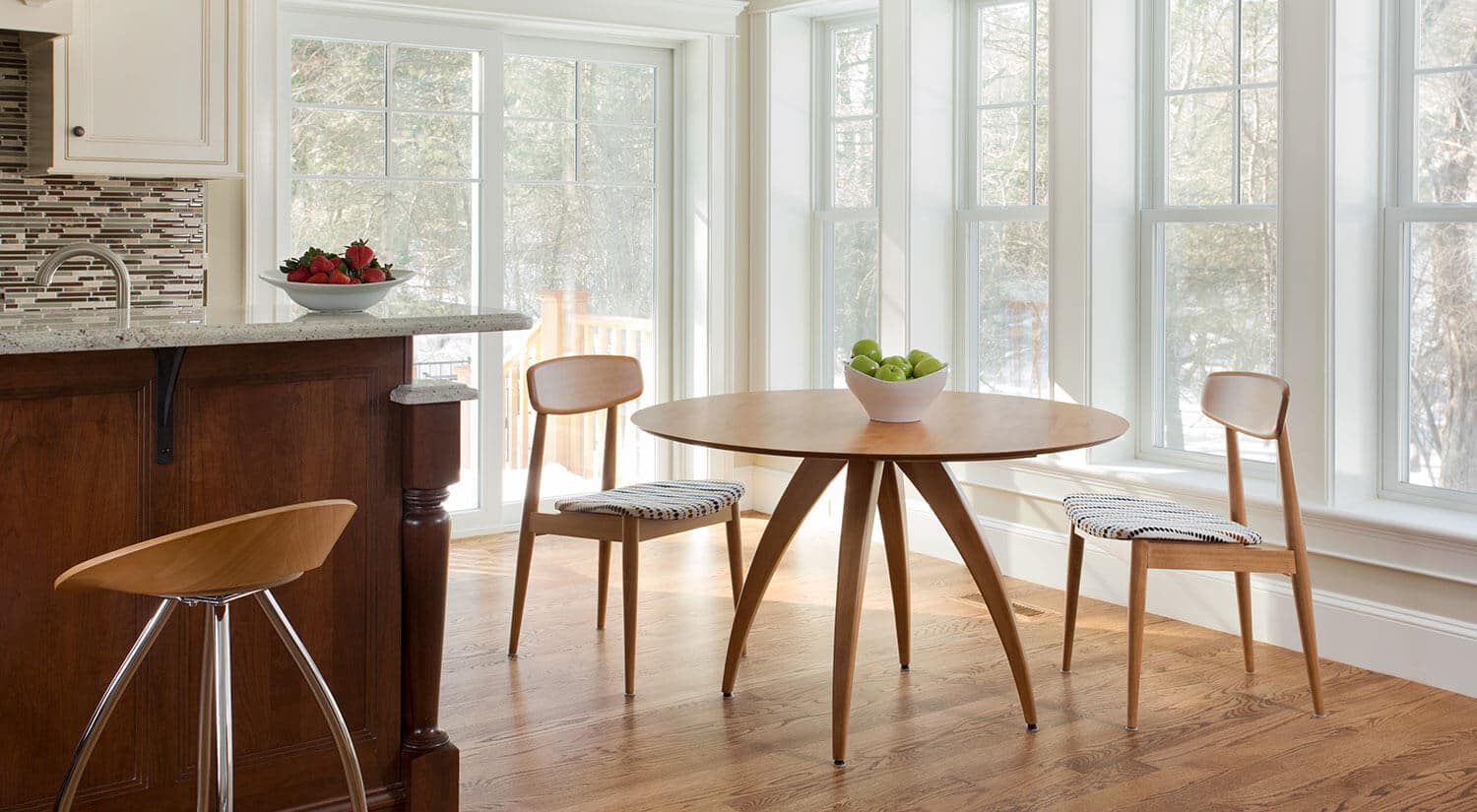Blog
How to Take Care of Your Dining Room Furniture
Regardless of whether you use your dining room furniture on a daily basis or reserve it for special occasions, it's a good idea to keep maintenance in mind, especially when it comes to beautiful furniture that you've invested in.
We're giving you a simple guide on how to maintain your furniture and extend its longevity so you can enjoy your dining table for years to come.

Keep in mind
The first thing to keep in mind is that natural wood furniture is a dynamic, natural material. Pitch pockets and stains are an inherent and beautiful part of natural wood. You can check out our Homeowner's Guide to Natural Wood to learn more.
If you're using your wood dining table every day, you'll inevitably see wear and tear over time. That said, if you purchase a natural hardwood table that's made with solid construction, the lifespan will be much longer than that of a cheaply made table.
Wood can also be restored and refinished. If you're just beginning your design journey and deciding what table to choose, keep in mind your lifestyle and the location of the table. For a comprehensive guide on how to choose the best dining table for you, read more here.
How to take care of your dining table
Natural wood
Daily and weekly maintenance
On a daily basis, there are a few habits you can pick up that will extend the longevity of your furniture over time.
- Dust your table. It may seem like a small task, but dust buildup can actually scratch the wood. Use a microfiber towel and gently buff. In general, avoid commercial silicone based dusting sprays as they can damage your furniture in the long run.
- On a similar note, don't leave crumbs and food on the table. They may seem harmless, but they can stain and/or scratch the surface.
- Be cautious of watches, rings, and metal jewelry when you're sitting at the table.
- In the same vein, try not to slide plates and pots across the table.
- For a deeper clean, wipe your table with a cloth and mild soap and water. Just be sure that you don't leave your table wet.
- Use a tablecloth and, if you want to be extra cautious, a table pad. These, along with placemats and coasters, will help to prevent condensation marks, heat damage, and oil stains.

Long-term maintenance
- When you start to see damage in your table or the finish has come off, bring new life to your wood furniture by having it refinished.
- If you have an extension table, don't leave your leaves in the table on a long-term basis. An extended table generally has less support than when it's not extended so it may bend in the middle if extended for too long.
- If your table only gets used on one side, or sunlight only shines on half the table, consider flipping your table. This will ensure your table ages evenly.
The great thing about a hardwood table is that it can be refinished. You'll also notice that over time, scratches start to mellow and blend in, especially if the whole table is used evenly. Ever notice that your grandmother's oak table still looks beautiful after all these years? Wood, if maintained well, ages beautifully.
Read more: MDF vs. Real Wood: Need-to-Know Information
Glass top

The first important thing consider about a glass top dining table is that if it's scratched, there may not be much you can do about it. But don't let that deter you from buying one if you find a style you love.
Every day scratches are usually only visible in certain light and at certain angles. If you're careful, your glass table may never scratch. Like wood, it has a tendency to be unpredictable in terms of what may or may not scratch it.
Be cautious with jewelry and sliding plates, and use placemats as a protective layer. To clean a glass top table, use ammonia mixed with water or a natural glass cleaner.

Final thoughts
Taking care of your dining room furniture is a simple matter of habit, daily maintenance, and awareness. Ultimately you know what your lifestyle and home decor preferences are, but keep in mind that high-quality furniture will have much greater longevity than furniture made without thought or care.
Keep dust off of your wood furniture with a microfiber towel, wipe it down when needed, and refinish your tabletop if it's looking lackluster. To avoid scratches on any surface, be cautious of jewelry, condensation, and hot plates. Keeping your glass table top clean is relatively easy with a glass cleaner.
Be sure to read the instructions that your manufacturer provides, and check out the furniture care section on our website for more information.
Author: Guest Author


